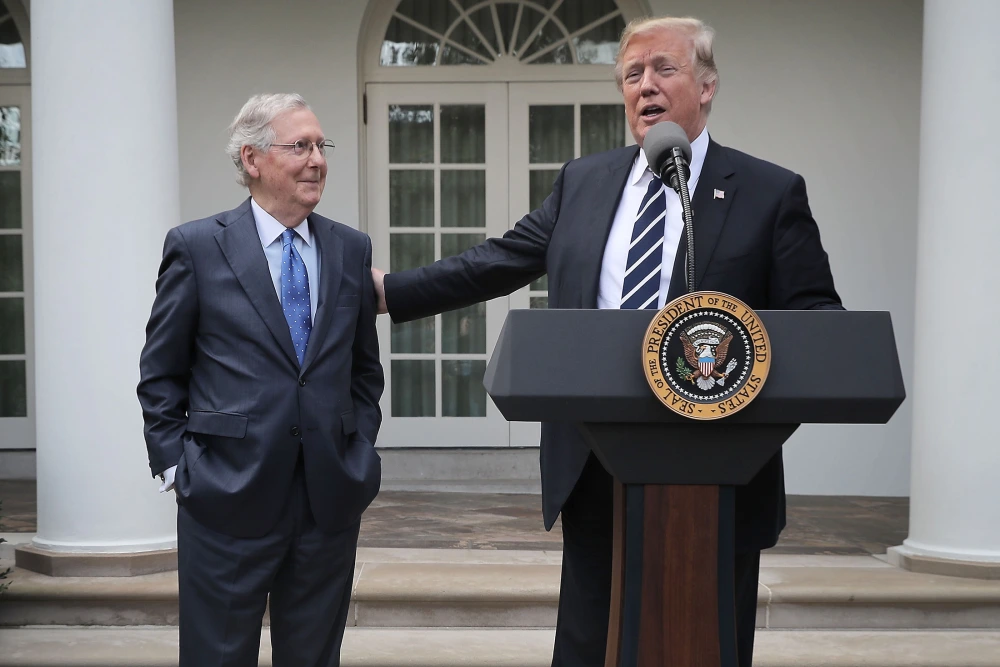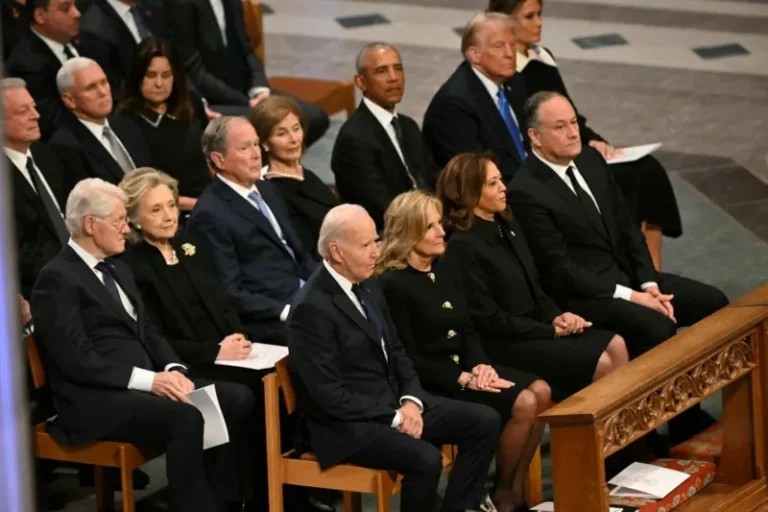
McConnell, a polio survivor, has lived with the lifelong effects of the disease.
WASHINGTON — Senate Minority Leader Mitch McConnell, R-Ky., a polio survivor, has strongly criticized a report from The New York Times revealing that a key lawyer and longtime advisor to Robert F. Kennedy Jr. once petitioned the Food and Drug Administration to revoke approval of the polio vaccine.
Kennedy, President-elect Donald Trump’s nominee to head the Department of Health and Human Services, has long been an outspoken critic of childhood vaccines, frequently promoting the unfounded claim that widespread vaccination contributes to childhood autism.
McConnell, who has lived with the lasting effects of polio since his childhood, emphasized the critical role the vaccine has played in saving lives and warned against actions that could undermine its availability.
“The polio vaccine has saved millions of lives and held out the promise of eradicating a terrible disease,” McConnell said in a statement to NBC News. “Efforts to undermine public confidence in proven cures are not just uninformed — they’re dangerous.”
The Times report highlights that Aaron Siri, an advisor to Kennedy and a lawyer representing the Informed Consent Action Network, filed the petition to revoke the polio vaccine’s approval in 2022. The Informed Consent Action Network is an anti-vaccine organization closely aligned with Kennedy. While a Kennedy spokesperson confirmed Siri’s advisory role, they stated that Kennedy and Siri had not discussed the petition.
McConnell’s statement reflects his commitment to safeguarding access to the polio vaccine.
“I have never flinched from confronting specious disinformation that threatens the advance of lifesaving medical progress, and I will not today,” he declared.
Despite Kennedy’s vocal opposition to vaccines, he claimed in an NBC News interview prior to his nomination that he does not intend to “take away anybody’s vaccines.” Instead, Kennedy stated his focus would be on ensuring the safety and efficacy of vaccines through rigorous scientific review.
“If vaccines are working for somebody, I’m not going to take them away,” Kennedy said. “People ought to have choice, and that choice ought to be informed by the best information. I’m going to make sure scientific safety studies and efficacy are out there so people can make individual assessments.”
While McConnell did not mention Kennedy by name in his statement, he underscored that any nominee seeking Senate confirmation must be clear about their stance on the polio vaccine.
“Anyone seeking the Senate’s consent to serve in the incoming administration would do well to steer clear of even the appearance of association with such efforts,” McConnell wrote.
Kennedy is scheduled to meet with senators on Capitol Hill next week. Although McConnell will step down as Senate Republican leader in January, his influence in the chamber remains significant. His opposition could pose a formidable challenge for any nominee.





